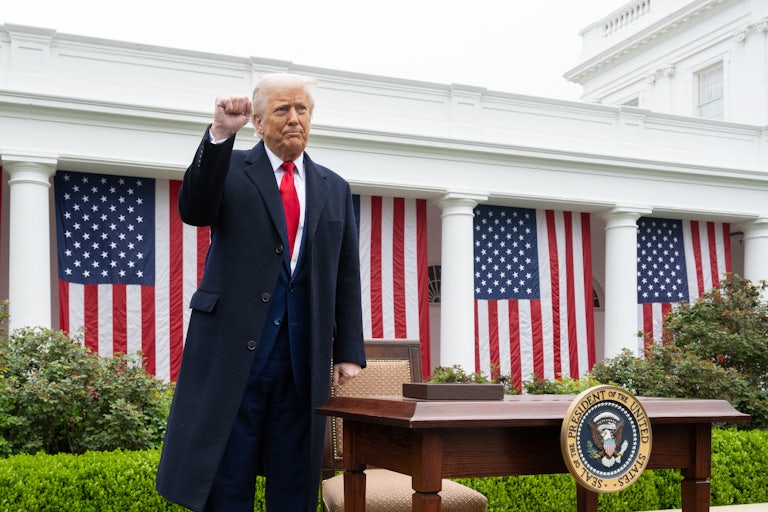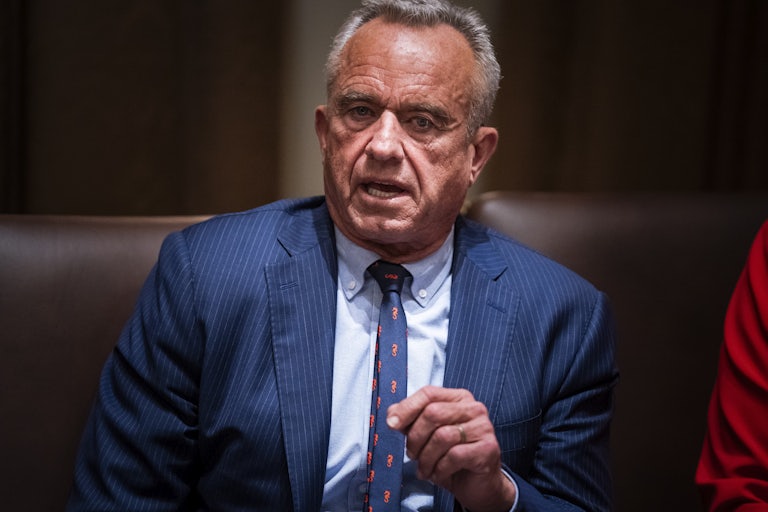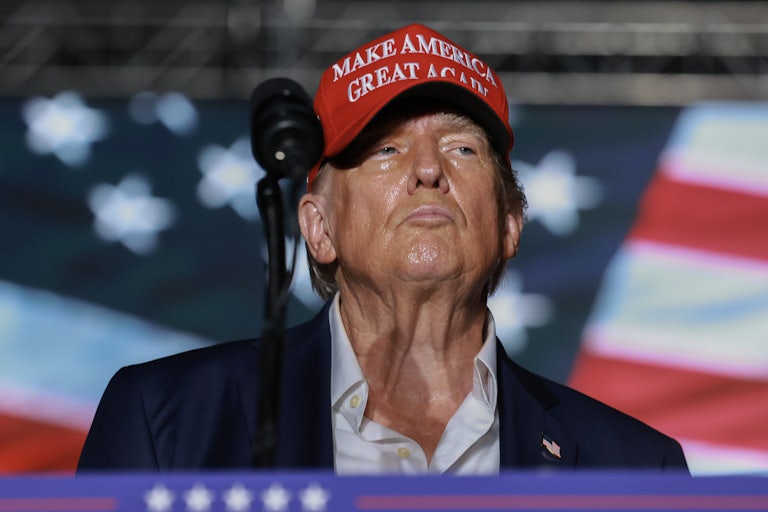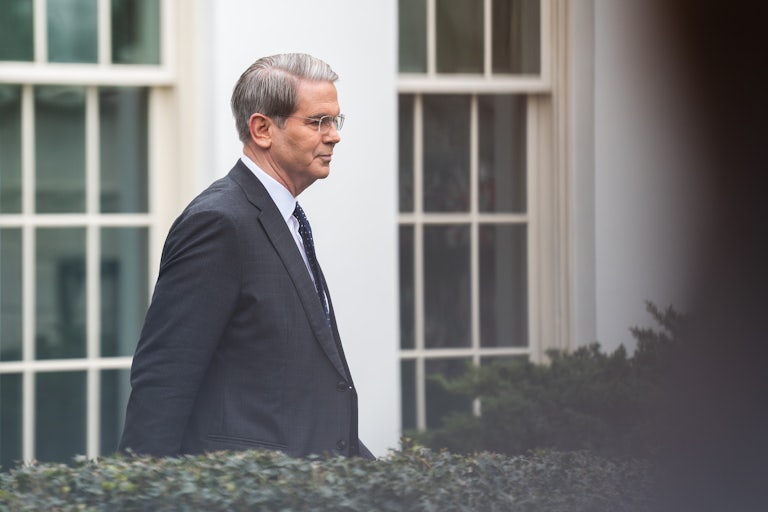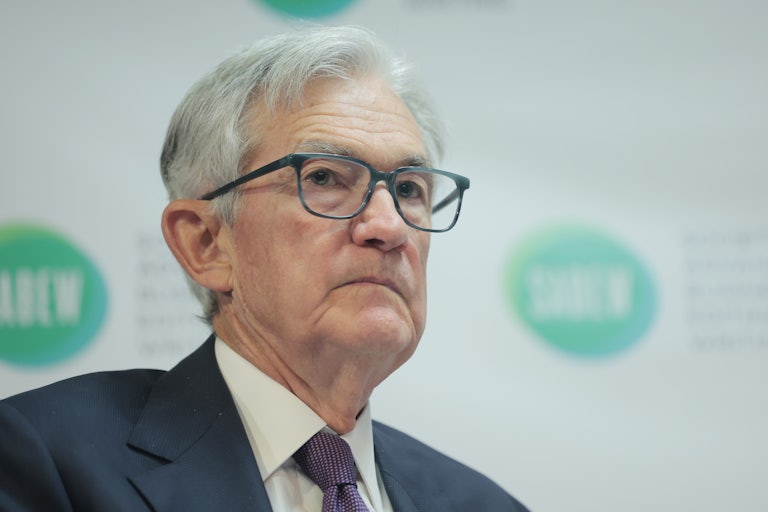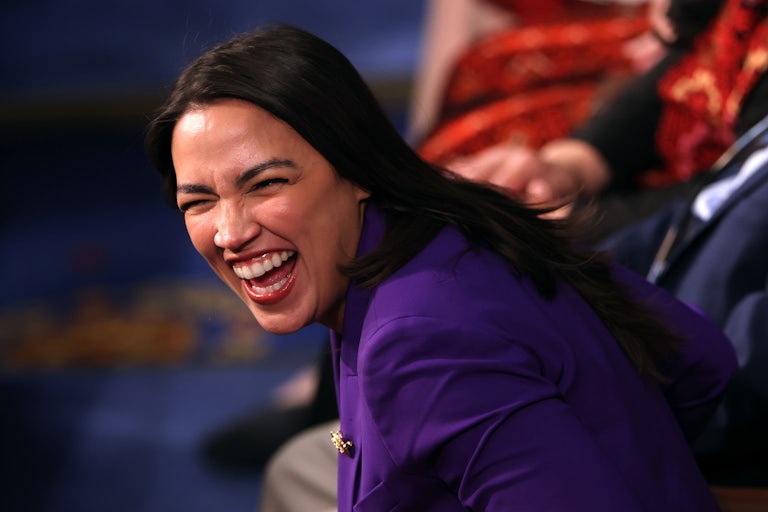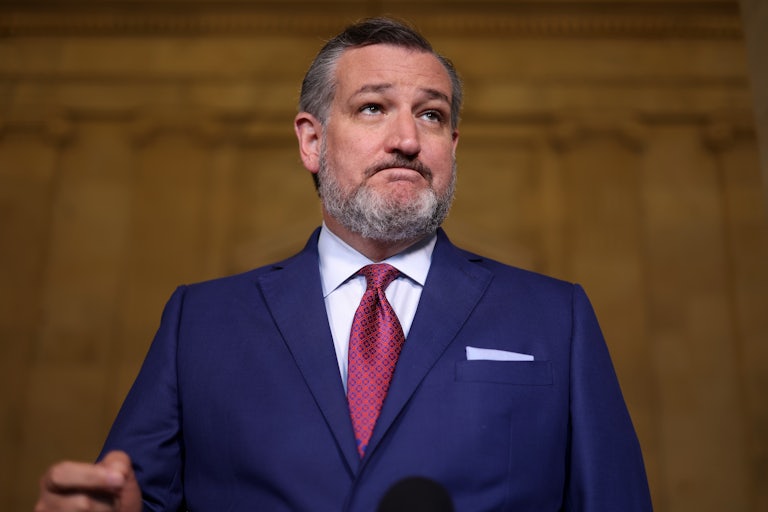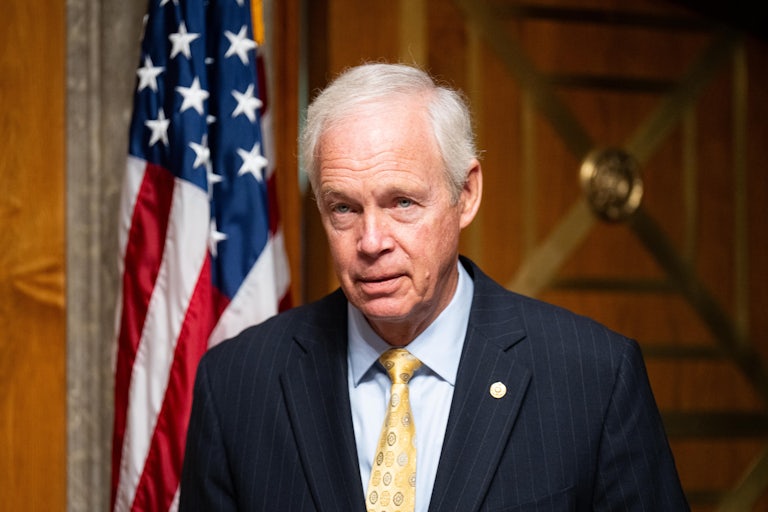Trump’s Tariff War Tanks Stock Market Even Further
China has hit back at Donald Trump’s tariffs.
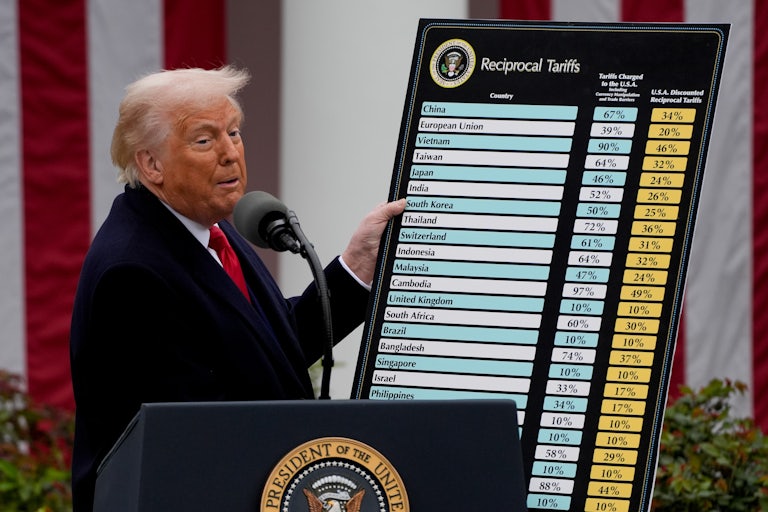
The Dow Jones plunged more than 2,000 points, or 5.1 percent, Friday as investors reacted to China’s retaliatory tariffs. The drop-off followed a 1,679-point decline the day before.
Beijing’s Commerce Ministry announced it would impose a 34 percent tariff on imports of all U.S. products as soon as April 10, matching the 34 percent tariff that Donald Trump announced he would impose on Chinese imports as part of his “Liberation Day” tariff strategy.
Despite publicly celebrating the enforcement of his plan, the U.S. president’s nonsensical economic strategy has tanked markets in just two days.
Wall Street’s “fear gauge,” the CBOE S&P 500 Volatility Index (VIX), jumped to 44.4 by Friday afternoon—a 22.8-point jump since Wednesday, and a 26.5-point jump since the beginning of the year, according to data compiled by The Wall Street Journal, putting the economy on track for a bear market.
In a note to investors, JP Morgan said that Trump’s tariffs had a 40 percent chance of slingshotting the U.S. economy into a recession. JP Morgan underscored that the tariffs would cause a price surge—adding two percent to the Consumer Price Index—and additionally raise taxes on Americans by $660 billion a year, “the largest tax increase in recent memory by a longshot,” CNN reported Thursday.
“The impact on inflation will be substantial,” the analysts said, according to the network. “We view the full implementation of these policies as a substantial macroeconomic shock.”
Beyond the economic devastation, Trump’s tariffs have also landed the U.S. in legal hot water. China also announced Friday it would be suing the U.S. via the World Trade Organization, arguing that Trump’s tariff plan “seriously undermines” global trade.
“The United States’ imposition of so-called ‘reciprocal tariffs’ seriously violates WTO rules, seriously damages the legitimate rights and interests of WTO members, and seriously undermines the rules-based multilateral trading system and international economic and trade order,” the Commerce Ministry said. “It is a typical unilateral bullying practice that endangers the stability of the global economic and trade order. China firmly opposes this.”
The Trump administration is also facing lawsuits over the sweeping tariff plan at home.
The New Civil Liberties Alliance sued the president Thursday, claiming that Trump’s decision to invoke the International Emergency Economic Powers Act to enforce the tariffs—which impacts trade with some 200 countries—did not give him the power to “usurp” Congress’s right to control tariffs or “upset the Constitution’s separation of powers.”
In a press release, the right-wing group (which has financial ties to Leonard Leo and the Koch network) argued that the emergency statute “authorizes specific emergency actions like imposing sanctions or freezing assets to protect the United States from foreign threats.”
“It does not authorize the President to impose tariffs,” the NCLA wrote.
